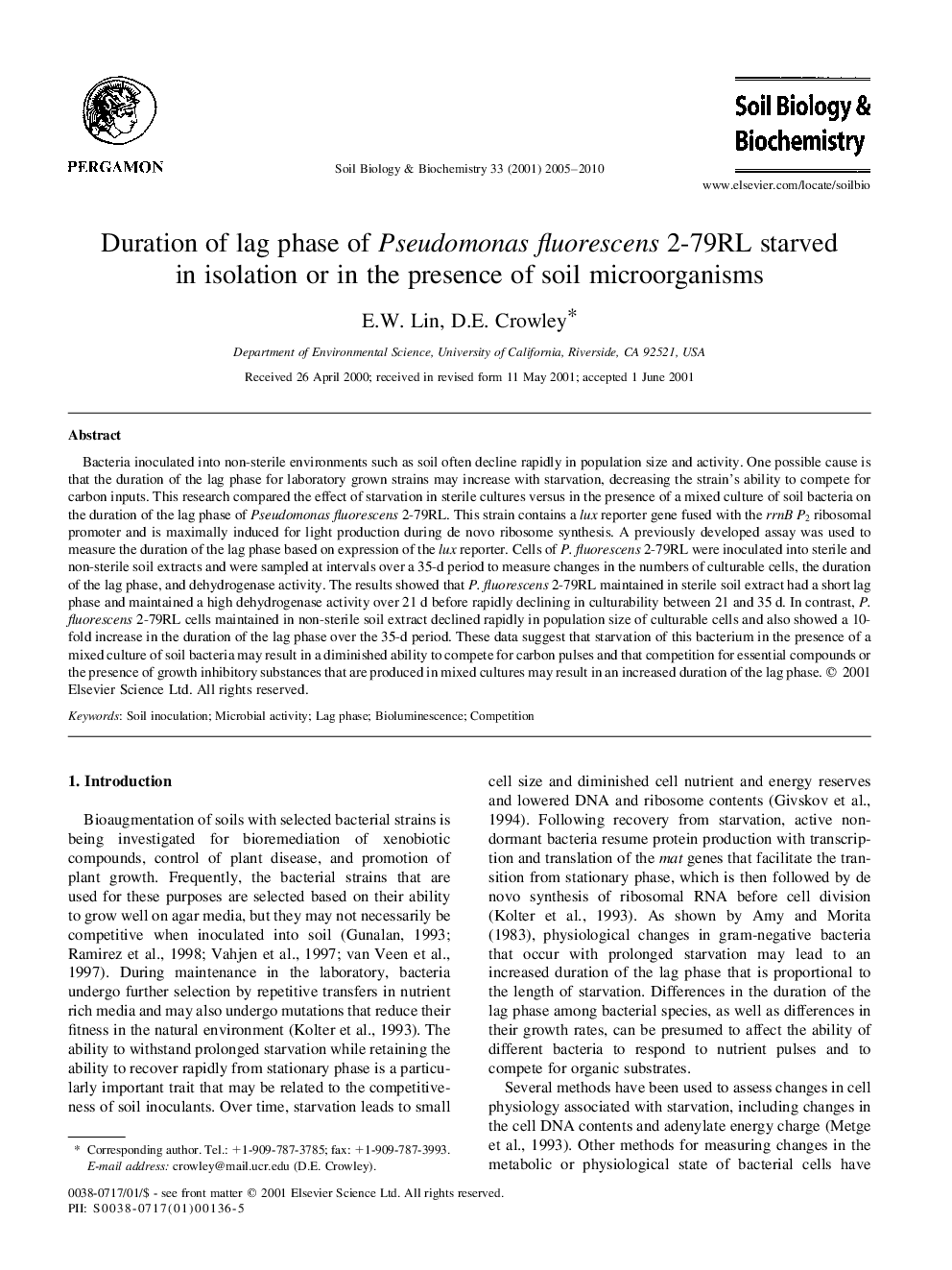| کد مقاله | کد نشریه | سال انتشار | مقاله انگلیسی | نسخه تمام متن |
|---|---|---|---|---|
| 2026976 | 1070069 | 2010 | 6 صفحه PDF | دانلود رایگان |

Bacteria inoculated into non-sterile environments such as soil often decline rapidly in population size and activity. One possible cause is that the duration of the lag phase for laboratory grown strains may increase with starvation, decreasing the strain's ability to compete for carbon inputs. This research compared the effect of starvation in sterile cultures versus in the presence of a mixed culture of soil bacteria on the duration of the lag phase of Pseudomonas fluorescens 2-79RL. This strain contains a lux reporter gene fused with the rrnB P2 ribosomal promoter and is maximally induced for light production during de novo ribosome synthesis. A previously developed assay was used to measure the duration of the lag phase based on expression of the lux reporter. Cells of P. fluorescens 2-79RL were inoculated into sterile and non-sterile soil extracts and were sampled at intervals over a 35-d period to measure changes in the numbers of culturable cells, the duration of the lag phase, and dehydrogenase activity. The results showed that P. fluorescens 2-79RL maintained in sterile soil extract had a short lag phase and maintained a high dehydrogenase activity over 21 d before rapidly declining in culturability between 21 and 35 d. In contrast, P. fluorescens 2-79RL cells maintained in non-sterile soil extract declined rapidly in population size of culturable cells and also showed a 10-fold increase in the duration of the lag phase over the 35-d period. These data suggest that starvation of this bacterium in the presence of a mixed culture of soil bacteria may result in a diminished ability to compete for carbon pulses and that competition for essential compounds or the presence of growth inhibitory substances that are produced in mixed cultures may result in an increased duration of the lag phase.
Journal: Soil Biology and Biochemistry - Volume 33, Issue 14, November 2001, Pages 2005–2010